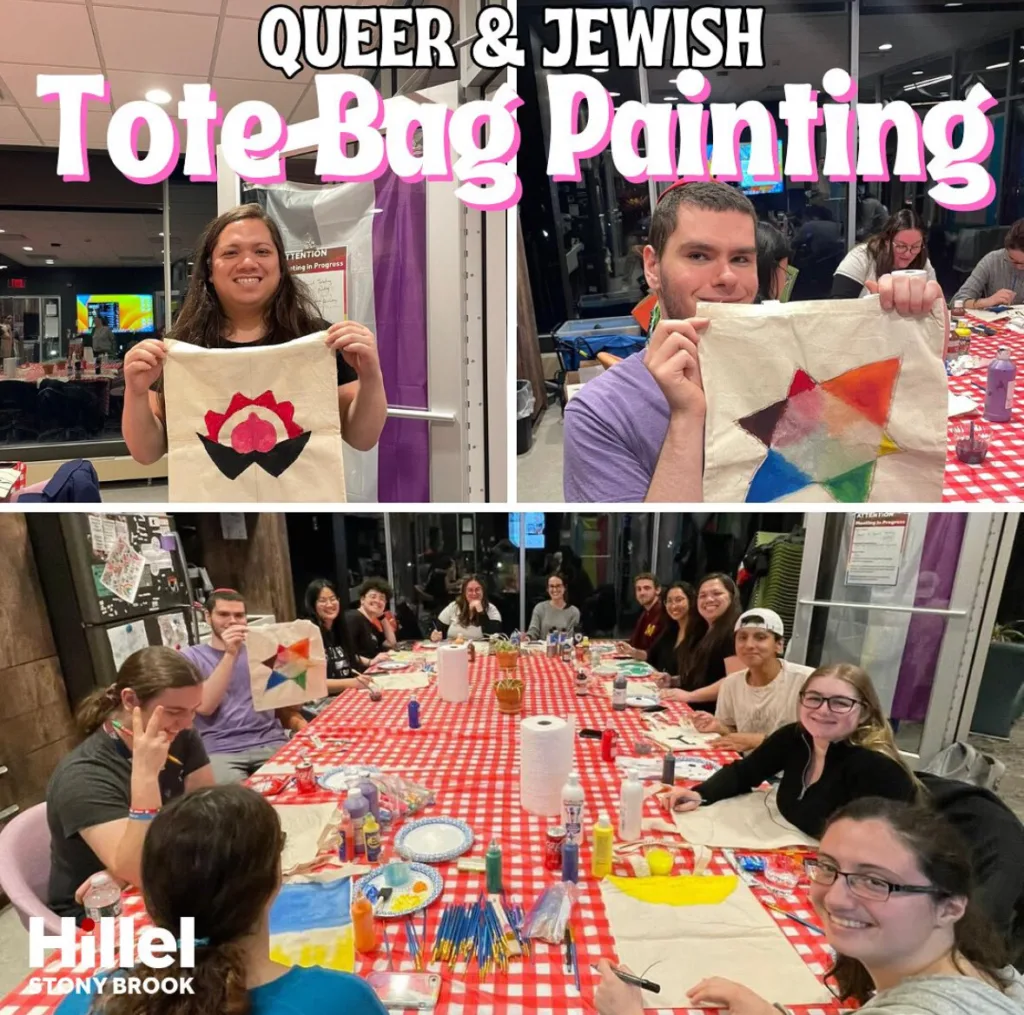Campus Microcommunities Have a Big Impact

Students step onto college campuses every day to explore their identities, their communities, and to find new ways of expressing who they are. When I was a student at the University of Buffalo, I found ways to lift up the different parts of my own multi-faceted identity. I am Jewish. I grew up speaking Russian. And I also have Japanese roots. Being involved with Hillel gave me opportunities to bring my whole self into the Jewish community.

When I became the Springboard Fellow at Stony Brook University, I was determined to create the same kind of opportunities for other Jewish students. Together with student leaders, I have worked to create a range of microcommunities within Stony Brook Hillel; spaces where students who share multiple cultural backgrounds can connect with each other and deepen their relationships with their own identities.
The first community I turned to was the Russian Jewish community. As a Russian-speaking Jew, I was able to ensure that programming was authentic and accurately represented our culture. This brought so much meaning to students within the Jewish Russian-speaking community at Stony Brook and inspired me to further broaden this opportunity to include other microcommunities. I invited students to launch programs that not only brought their identities to life but also introduced their fellow students to their unique cultural backgrounds.
Just a few months later, with the creation of the “Culture Committee,” a cohort that empowers students to authentically and effectively host events for microcommunities, we are growing into a Hillel that celebrates the diversity of the Jewish people by hosting events that gather Jews from various backgrounds. Whether watching Russian cartoons or painting tote bags together at the LGBTQ center, we create meaningful opportunities for students to connect with and learn from one another.
This work helps me connect with students who may not have initially found meaning in their Jewish identities. While the Jewish community is often perceived as monolithic, our microcommunity-focused work uplifts all kinds of Jewish students, altering that perception both within the Jewish community as well as the broader campus community. This means that Jewish students who would have never considered connecting with a Jewish community on campus now feel welcome and that they have a home at Hillel.
We have also been able to welcome a new group of student leaders who began their Hillel journeys in the Culture Committee. Students who have led microcommunity-specific events have gained experience and confidence to take on other leadership roles at Hillel.

I’m so grateful that our efforts around building space for all kinds of Jewish identities have provided Stony Brook students the opportunity to connect Jewishly and culturally and grow in their leadership abilities. I am excited to see the ongoing growth of our Hillel as the Culture Committee continues to evolve.